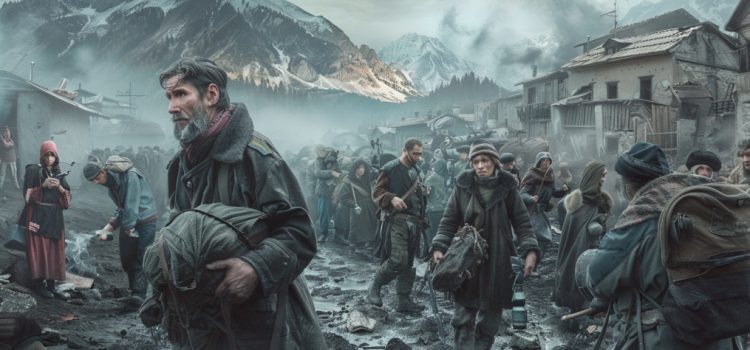
Have you ever wondered who truly bears the costs of war? What price do service members and citizens pay while others profit?
Ordinary citizens suffer the harsh repercussions of war. Not only do combatants and their loved ones grapple with physical wounds and psychological turmoil, but the wider community also shoulders the prolonged financial burdens, all without reaping any of the fiscal advantages that conflict might offer.
Read on to discover the harsh realities of war’s impact on ordinary people.
The Costs of War
In his book War Is a Racket, General Smedley D. Butler argues that, while corporations and bankers get rich during wartime, the costs of war are shouldered by ordinary citizens—those who fight and those on the home front. The highest price they pay is their lives and well-being. War also imposes a heavy financial burden on citizens through steep taxes and economic turmoil.
The Highest Price
Troops sent into combat endure extreme hardships and risk their lives, while those who profit financially do so safely and profitably from the safety of their own homes. Butler reveals the deep psychological and physical scars carried by veterans, illustrating how the traumas of conflict persist within the minds and bodies of those who have served, extending beyond geographical boundaries. Many former service members, who once led civilian lives, find the shift back to civilian life challenging, leading to an alarmingly high number of cases where their spirits are broken and their determination is shattered.
The relatives of service members also endure considerable hardship, grappling with deep grief and upheaval as they deal with the repercussions of war. The alarmingly elevated mortality rates among former service members, in contrast to civilians, coupled with the troubling experiences they face in healthcare settings, underscore the profound consequences of armed conflict. Butler describes scenes where soldiers, ostensibly healthy, are irreparably mentally broken, their human dignity assaulted by the trauma they endured.
Financial Costs to the Citizenry
The burden of war’s financial demands leads to a rise in the nation’s debt, a sum that might take multiple generations to repay. War’s financial gains are reaped by a privileged minority, while the onerous costs are borne by many who receive no benefit. Economic turmoil frequently follows major conflicts, plunging ordinary people into further hardship. Taxpayers shoulder the economic weight of military operations that unevenly allocate gains, and these confrontations can precipitate significant financial declines where banks and stock exchanges may take advantage of the situation, as demonstrated by transactions involving government war bonds.
The citizens bear the financial strain of sustaining a robust military force, which includes a substantial naval component, as funds are diverted from essential societal needs to bolster the expansion of the defense industry.
War’s legacy inflicts lasting wounds, affecting not just the sites of conflict but also the domestic sphere, where the repercussions are borne by families over time. Financial unpredictability manifests in various ways, including periods of economic downturn and persistent tax burdens, and it consistently has profound effects on the lives and well-being of many people.






